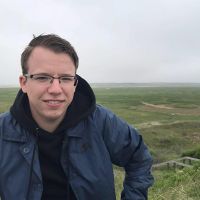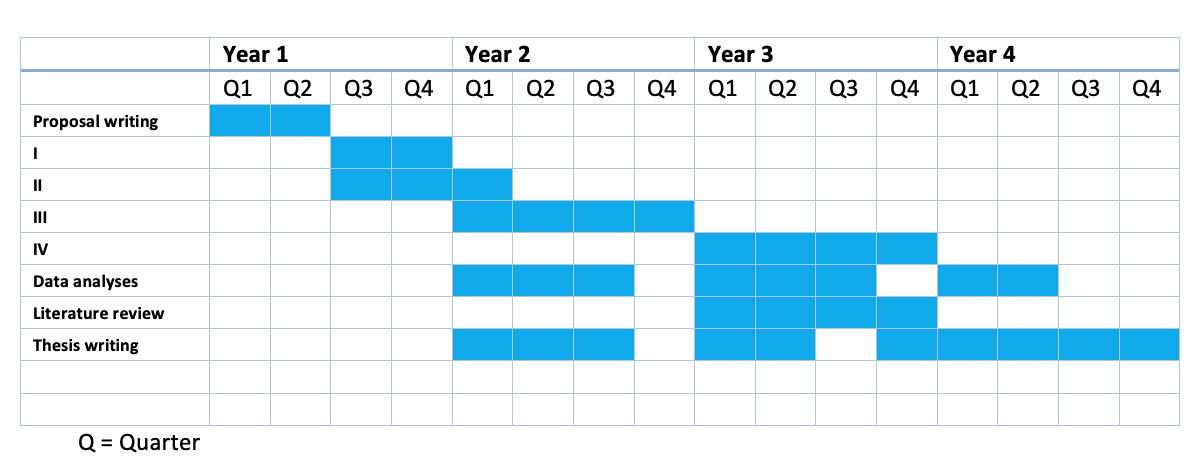Rody
Blom

Project
Track: 1, Citizen science for mosquito surveillance
Tags
Promotor
Prof. dr. M. Dicke
Co-promoter(s)
dr. C.J.M. Koenraadt
Advisor(s)
dr. M.J.J. Schrama, Prof. dr. F. Bartumeus
Institute(s)
Laboratory of Entomolgy, Plant Sciences Group, Wageningen University & Research
Description PhD project
Europe is at increased risk of (re-)emerging mosquito-borne diseases. It is expected that changes in climate, land use and anthropogenic activity will induce shifts in the abundance and density of invasive and endemic mosquito- and host species. The majority of mosquito-borne diseases is zoonotic. Therefore, it is of key importance to study mosquito-host interactions. The use of novel techniques (molasses-fermentation based trapping and citizen science) provides promising results in the capture of blood-fed mosquitoes, but these have not yet been deployed to investigate host preference based on blood meal identification. This thesis will therefore focus on optimization of blood-fed mosquito capture techniques, identification of host-preferences and studying the effects of environmental conditions and host availability on these host-preferences. Firstly, the efficacy of molasses-based fermentation will be assessed in the lab as well as in the field. Secondly, the host preferences of mosquitoes found throughout The Netherlands will be identified via molecular blood-meal analysis. Thirdly, on a smaller scale, mosquitoes will be sampled at four different land-use types in and around Wageningen, The Netherlands. At the same locations, the vertebrate host community will be studied and compared to vertebrate communities detected in mosquito blood meals. Finally, a citizen science study will be conducted in which ‘Muggenradar’ will be used to collect mosquitoes in order to identify human exposure to mosquito bites on a large spatiotemporal scale. Collected blood-engorged mosquitoes will be used to identify the host preferences of mosquitoes collected indoors. In conclusion, these studies are expected to provide valuable insights in mosquito host preferences and the effects of environmental conditions thereon.
Research questions / objectives
- Identifying the efficacy of molasses-fermentation based trapping compared to sugar-fermentation-based trapping in the lab as well as in the field.
- General identification of mosquito species-specific host preferences in The Netherlands?
- Identifying the effects of land-use type and host availability on mosquito species-specific host preferences.
- Identifying the species-specific host preferences of mosquitoes caught indoors and the seasonal variation therein
Please note: The objectives mentioned above are as they are described in my research proposal. In the meantime, my objectives have shifted more towards citizen-science related work. For instance, spatiotemporal field captures will be compared to citizen science nuisance reports. In addition, objective IV will focus on more than just host-preferences, but will also include other biological parameters. Some work will be done on activity patterns, for which BG Counters will be used.
Timeline

Tags matching with the contents of track 1
Methods
-
Labwork
- PCR: qPCR is used to biotype Culex pipiens mosquitoes. In addition, I will use qPCR assays to identify vertebrate host origin from mosquito blood meals.
- RNA/DNA extraction: DNA extraction from mosquitoes and/or blood meals for subsequent biotyping and blood meal analyses.
- Next generation sequencing (NGS): Sequencing of blood meal qPCR products to identify blood meal origin.
- Living mosquito experiment: I will do trapping experiments in a flight cage. I will do this to 1) test the BG Counter and 2) assess the efficacy of molasses-fermentation based trapping.
Fieldwork
- Mosquito trapping: I will do small- and large scale mosquito field surveys.
Citizen science
- Citizen science: I use citizen science (Muggenradar) to collect nuisance data and mosquito specimens. This data will be compared to the data collected in the field.
Literature
- Literature review: I am currently working on a literature review on urbanization and mosquito-borne disease outbreak risk. Primarily from and entomological and ecological point of view
Topics
-
Vector:
- Vector abundance: I will look at the spread and abundance of mosquito species.
- Habitat suitability: I will include certain habitat characteristics in my statistical models.
Host:
- Host abundance: I would like to look into plasticity in host preferences as a consequence of host availability. Not sure whether this will be feasible.
Environmental:
- Climate: I will include climate effects in my statistical models
- Habitat type: Habitat types will be included in the statistical models. Probably derived from the CORINE-database.
Species
-
Species:
- Mosquito: I am studying mosquito ecology and activity patterns. I will use field sampling and citizen science to acquire more information on important biological characteristics such as species-specific host preferences and activity patterns.
Virus
-
Virus:
- West Nile virus: My research is currently focused primarily on Culex pipiens as a result of the recent WNV findings.